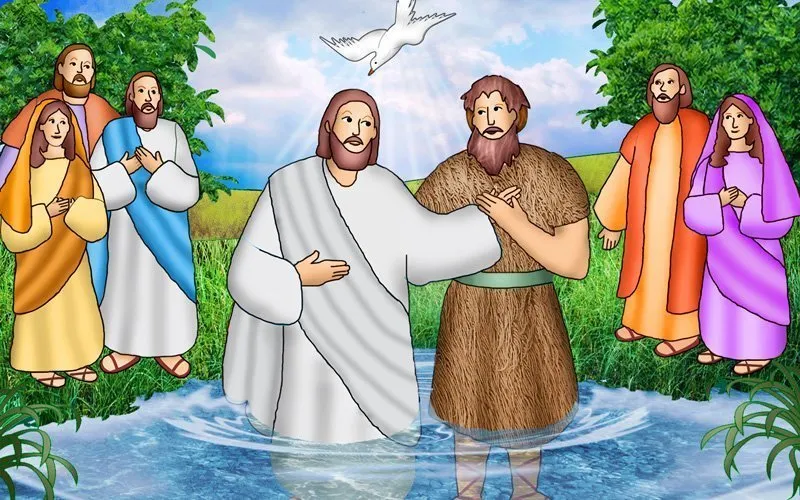The Voice in the Wilderness: St. John the Baptist and Our Lenten Journey
As we journey through Lent, a season of repentance and renewal, we encounter St. John the Baptist, a figure who bridges the Old Testament prophets and the New Covenant, and a powerful example for our own spiritual preparation. While often associated with Advent, his message of repentance resonates deeply with the Lenten call to metanoia, a transformative change of heart. Like Lent itself, John's ministry was preparatory, a herald announcing the imminent arrival of the Messiah, Jesus Christ. His cry, "Repent, for the kingdom of heaven is at hand!" (Matthew 3:2), echoes through the ages, reminding us that true encounter with Christ demands a turning away from sin and a turning towards God.
John's message was not one of mere ritual or
external observance, but a radical call to moral reform. He challenged the
hypocrisy of the Pharisees and Sadducees, demanding fruits worthy of
repentance. His practical advice to the crowds – to share, to be just, to avoid
corruption – underscores the connection between inner conversion and outward
actions. John's own ascetic lifestyle, clad in camel's hair and subsisting on
locusts and wild honey, served as a stark reminder of the penitential nature of
his mission. He was a man of unwavering integrity, even confronting Herod
Antipas's illicit marriage, a courageous act that ultimately led to his
martyrdom. Pope Benedict XVI, in his writings, often emphasized the importance
of moral integrity and the prophetic voice in challenging societal injustices.
John the Baptist's life exemplifies this call to truth, reminding us that true
repentance often demands courage and sacrifice.
John's baptism in the Jordan River served as a
precursor to Jesus's own baptism and the sacrament of Baptism that we receive
today. As the Catechism teaches, Baptism washes away original sin and initiates
us into the life of grace. However, like the crowds who flocked to John, we are
called to continually acknowledge our sinfulness and seek purification. The
sacrament of Penance, as the Church reminds us, is a "rescue plank"
for those who have fallen into sin, a means of encountering the risen Christ
and receiving His forgiveness. This sacrament, particularly during Lent, offers
us the opportunity to deepen our conversion and live more fully in God's grace.
Therefore, as we reflect on St. John the Baptist during this Lenten season, let us heed his call to repentance. Let us examine our hearts, confess our sins, and strive to live lives worthy of our calling as followers of Christ. Like John, may we be courageous in proclaiming the truth, and may our actions reflect the transformative power of God's grace. By embracing the spirit of repentance and conversion, we prepare ourselves to fully celebrate the glorious resurrection of our Lord at Easter.




Comments
Post a Comment